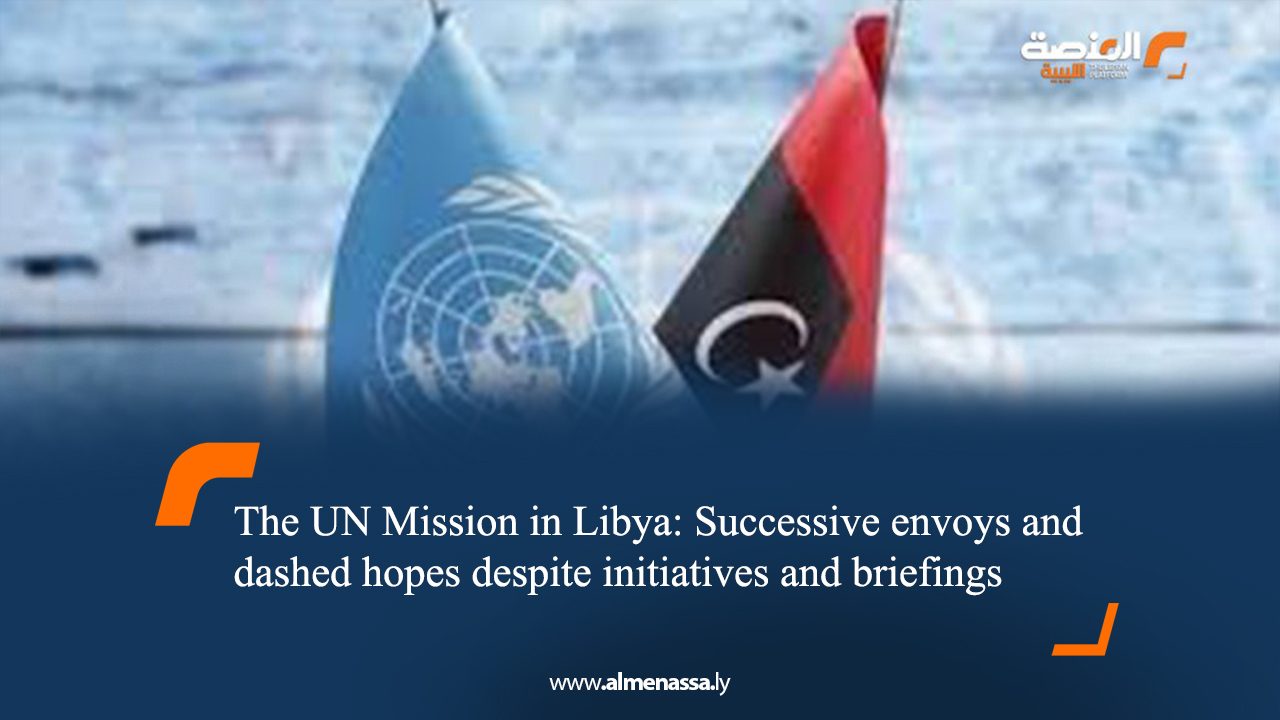Since 2011, ten UN envoys from various nationalities and continents have succeeded one another in Libya, the latest being Hannah Serwaa Tetteh from Ghana. Like her predecessors, Tetteh delivers regular briefings to the Security Council on developments in the country.
Recurring briefings yield no change
The cumulative work of these ten UN envoys in Libya amounts to dozens of briefings presented to the Security Council, mirrored by an equal number of statements of welcome, support, condemnation, and denunciation. After 14 years of these UN envoy briefings, it can be asserted that, despite the differing personalities and nationalities of the envoys, they share specific core points.
Briefings by UN envoys to Libya are similar across several axes, most notably: continuous emphasis on the need to achieve political and security stability, support for national reconciliation efforts, and encouragement for free and fair elections. These briefings also focus on the importance of Libya’s territorial integrity and sovereignty, and the imperative to withdraw all foreign forces and mercenaries. They do not overlook providing humanitarian assistance to those affected by the conflict. Briefings typically include an assessment of the political and security situation, highlighting the challenges facing Libya and offering recommendations for addressing them.
Initiatives lacking driving force
These briefings are sometimes interspersed with initiatives aimed at resolving the crisis or at least stirring the stagnant waters. However, most of these initiatives have not led to tangible positive changes on the ground, for several reasons, including their lack of the necessary power to compel the various parties to accept them practically, not just theoretically.
During the same sessions that include UN briefings, delegates from major powers take the floor, their speeches, over the years, never deviating from the general framework of the UN Mission’s pronouncements and its assessments of the reality and dimensions of the Libyan crisis, always reiterating their support for the Mission’s efforts in the country.
Silence demands clarity
This reality was articulated by Libya’s Permanent Representative to the United Nations, Al-Taher Al-Sunni, on several occasions before the Security Council. In January 2024, Al-Sunni stated: “There is nothing new to report or concrete progress in the political process, and a long-standing stalemate has persisted.” He added: “UN envoys come out in the media after their missions conclude and reveal the obstructors [of the political process], whether individuals or states, and Libyans deserve to know that now.”
The discussion of successive UN envoys to Libya and their numerous initiatives does not diminish the importance of the UN’s role in the country. On November 21, 1949, the UN General Assembly issued a historic resolution that Libya should become an independent and unified state. However, this argument underscores that UN efforts must translate into practical solutions on the ground, supported by concerted local and international political efforts, to resolve the ongoing Libyan crisis


